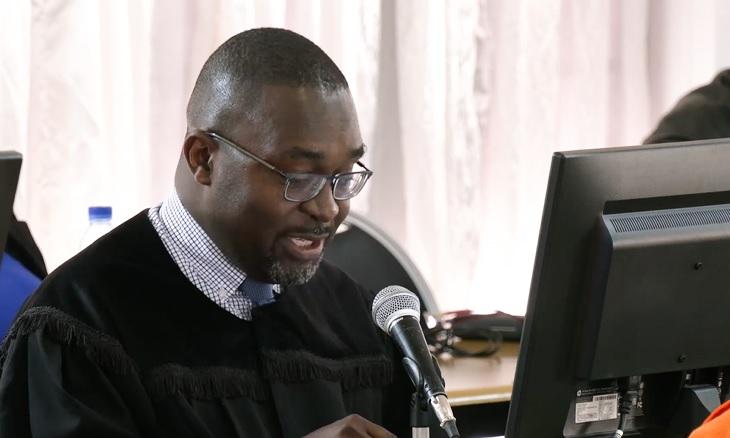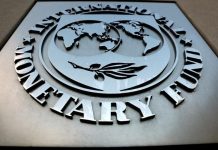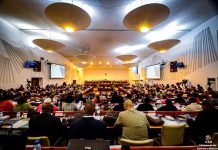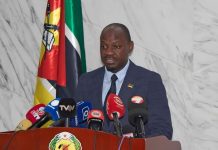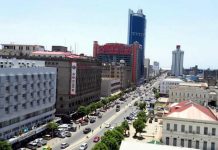Africa-Press – Mozambique. A defence lawyer in the trial of 19 people before the Maputo City Court, accused of crimes connected with the scandal of Mozambique’s “hidden debts”, on Monday demanded that the independent audit of the three fraudulent, security-related companies Proindicus, Ematum (Mozambique Tuna Company) and MAM (Mozambique Asset Management), which are at the heart of the case, should not be admitted as evidence.
The company Kroll Associates audited the three companies in 2017, and wrote a devastating report which demonstrated how the sole supplier for the companies, the Abu Dhabi based group, Privinvest, had grossly over-invoiced for the assets it supplied.
The three companies obtained loans of over two billion dollars from the banks Credit Suisse and VTB of Russia, based on illicit loan guarantees issued by the government of the then President Armando Guebuza.
The two banks sent the money, not to the companies in Maputo, but to Privinvest. Privinvest sent fishing boats, patrol vessels, aircraft, radars and other assets to Mozambique, but when Kroll undertook an independent evaluation, it found that Privinvest had overcharged the companies by more than 700 million dollars.
Antonio Carlos do Rosario, who was head of economic intelligence in the country’s security service, SISE, before becoming chairperson of all three companies in 2014, is one of the main suspects in the fraud, and his lawyer, Alexandre Chivale, strongly objected to using the Kroll report as evidence.
He claimed that the Attorney-General’s Office (PGR) had only sent the three companies the Executive Summary of the Kroll report. The companies had written a rebuttal, which the judge, Efigenio Bptista, allowed him to read into the trial record. But the companies never received the full report, he claimed, and so the prosecution should make no mention of it. Rather, the report should be regarded as null and void for purposes of evidence.
Prosecutor Sheila Marrengula regarded the argument as absurd. The Kroll report has been part of the evidence since 2017, she said, and the defence has had every opportunity to object to its inclusion, but has not done so until now.
Furthermore, the Penal Procedural Code list the grounds on which evidence can be regarded as invalid. There are eight of these, and Marrengula asked which of these Chivale had in mind. He did not reply.
Baptista told Chivale the defence had been aware of the Kroll report as from August 2017 and had not reacted. The deadline for claiming the report was invalid was five days, “and that deadline has expired!”
Chivale continued to protest, until Baptista told him “We’re going round in circles. The Kroll report is already in the court records”.
He threw Chivale’s request out, and so Marrengula continued to ask questions based on the audit report, despite Rosario’s threat that he would only to questions based on the executive summary, not the full report. Although Rosario claims to be an expert on company management, he dismissed the Kroll summary as “a first draft”, thus showing he is quite unaware of the difference between a draft and an executive summary.
Marrengula compared prices for the boats provided by Privinvest to Proindicus with world market prices and, for two categories of boats, found a difference of 259.5 million dollars. Rosario was unable to explain what measures, if any, had been taken to avoid such price gouging.
The deals signed with Privinvest were turnkey contracts – that is the assets were not purchased from Privinvest item by item, but as a package deal for a lump sum. The companies had bought “an integrated protection system” from Privinvest.
Asked whether nobody in the companies had ever imagined that Privinvest might use the turnkey contracts “to slip in illicit payments without being detected”, Rosario admitted “we didn’t even think about that”.
He also insisted that all the assets provided by Privinvest had arrived and were operational. But Marrengula pointed out that some of the radar stations were still missing. What, she asked, had happened to the radars at Metangula (on Lake Niassa), or in the southern resorts of Vilankulo and Ponta de Ouro?
Apparently they were not completed, for Rosario answered “when I was arrested (in early 2019), the work was advanced”.
Marrengula added that some of the radar stations could not be operational since they were in places that did not even have electricity.
Rosario claimed that talking about the country’s radar defences constituted a threat to national security. “For security reasons, we didn’t show all our radars to Kroll”, he added.
Repeatedly, he said that documents in the possession of the prosecution are forgeries. When the judge noted that some of the alleged forgeries bear his signature, Rosario replied “it looks like my signature, but I didn’t sign this”.
“I don’t recognize this e-mail” and “This document was forged” have become familiar refrains in the four days of Rosario’s testimony.

